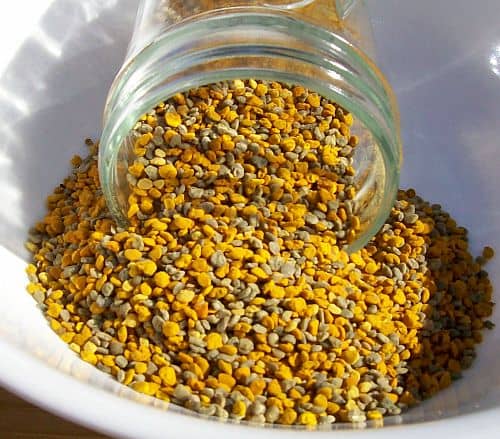Gone to the Bees...
 My allergies are going crazy!!!! I mean seriously bad.. If I've sneezed once I've sneezed 1,000 times. I started allergy shots about a month ago and I have to go get a shot today. Honestly I feel like my allergies are worse than ever..Help I can't stand it. I know I'm allergic to dust, mold, and animal dander...especially cat. I'm also allergic to grass, but that's about all outside. I actually feel lots better when I'm outside, accept when there is alot of humidity. Then it's like the air itself is suffocating me. Breathing sometimes is like breathing threw a filter, and I feel like the air is never clean it's racked full of all this dust, and other allergens that make my nose, head, and lungs go crazy. I feel like crap. There isn't a med that helps me. Someone suggested to me Bee Pollen and Honey as a Natural Remedy... Maybe????
My allergies are going crazy!!!! I mean seriously bad.. If I've sneezed once I've sneezed 1,000 times. I started allergy shots about a month ago and I have to go get a shot today. Honestly I feel like my allergies are worse than ever..Help I can't stand it. I know I'm allergic to dust, mold, and animal dander...especially cat. I'm also allergic to grass, but that's about all outside. I actually feel lots better when I'm outside, accept when there is alot of humidity. Then it's like the air itself is suffocating me. Breathing sometimes is like breathing threw a filter, and I feel like the air is never clean it's racked full of all this dust, and other allergens that make my nose, head, and lungs go crazy. I feel like crap. There isn't a med that helps me. Someone suggested to me Bee Pollen and Honey as a Natural Remedy... Maybe???? As I was reading up on Bee Pollen, I came across time and again "Seasonal" allergies..Geee...I wish.. I have Yearly allergies..lol The below article about Honey basically says that honey works the same way as a allergy shot only naturally.. That's literally a "Sweet"...deal. Also, I posted a article on Bee Pollen, apparently it is also good for weight loss as it stimulates the metabolism...hmmm

How Honey Could Cure Your Allergies
There have been no peer-reviewed scientific studies that have conclusively proven whether honey actually reduces allergies. Almost all evidence regarding the immunizing effects of eating honey is anecdotal. But these reports have proven persuasive enough for some people to try to fight their seasonal allergies by eating honey every day.Without scientific inquiry, we're left with only theories about how honey could reduce allergies. The prevailing theory is that it works like a vaccination. Vaccines introduce dummy versions of a particular virus or germ into the body and effectively trick it into believing it's been invaded, triggering an immune system response [source: UNICEF]. This produces antibodies designated to fight off the foreign invaders. When the body is actually exposed to the harmful germ or virus, the antibodies are ready for them.
The idea behind eating honey is kind of like gradually vaccinating the body against allergens, a process called immunotherapy. Honey contains a variety of the same pollen spores that give allergy sufferers so much trouble when flowers and grasses are in bloom. Introducing these spores into the body in small amounts by eating honey should make the body accustomed to their presence and decrease the chance an immune system response like the release of histamine will occur [source: AAFP]. Since the concentration of pollen spores found in honey is low -- compared to, say, sniffing a flower directly -- then the production of antibodies shouldn't trigger symptoms similar to an allergic reaction. Ideally, the honey-eater won't have any reaction at all.
As innocuous as honey seems, it can actually pose health risks in some cases. Honey proponents warn that there is a potential for an allergic reaction to it. And since honey can contain bacteria that can cause infant botulism, health officials warn that children under 12 months of age whose immune systems haven't fully developed shouldn't eat honey at all [source: Mayo Clinic].
If a regimen is undertaken, however, local honey is generally accepted as the best variety to use. Local honey is produced by bees usually within a few miles of where the person eating the honey lives. There's no real rule of thumb on how local the honey has to be, but proponents suggest the closer, the better [source: Ogren]. This proximity increases the chances that the varieties of flowering plants and grasses giving the allergy sufferer trouble are the same kinds the bees are including in the honey they produce. After all, it wouldn't help much if you ate honey with spores from a type of grass that grows in Michigan if you suffer from allergies in Georgia.
At least one informal (unfunded) study on allergies and honey conducted by students at Xavier University in New Orleans produced positive results. Researchers divided participants into three groups: seasonal allergy sufferers, year-round allergy sufferers and non-allergy sufferers. These groups were further divided into three subgroups with some people taking two teaspoons of local honey per day, others taking the same amount of non-local honey each day and the final subgroup not taking honey at all. The Xavier students found that after six weeks, allergy sufferers from both categories suffered fewer symptoms and that the group taking local honey reported the most improvement [source: Cochran].
The study was never published, but the anecdotal evidence in favor of honey as an allergy reliever continues: Several of the study participants asked if they could keep the remaining honey after the experiment was concluded.
Bee Pollen
Comments
Post a Comment